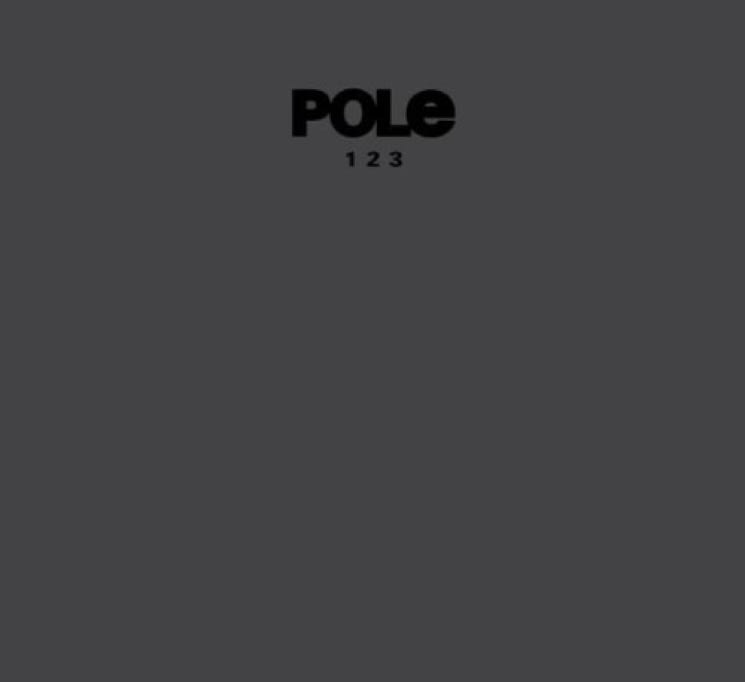It is a cliché to describe old music as timeless, and often a harmful one at that. It generally smacks of narrow-minded nostalgia, and a kind of traditionalism that negates the value of what's new.
In a very few cases, though, music can genuinely maintain its relevance well beyond the time in which it was produced. Twenty years ago, Pole (a.k.a. Stefan Betke) produced a lesser known trio of recordings that continue to resonate within electronic music circles. The albums — simply titled 1, 2 and 3 — have been repackaged as a box set. They were originally released in 1998, 1999 and 2000, respectively.
Betke chose his stage name from an analogue Waldorf 4-Pole filter he was using at the time. Described by the manufacturer as a "cute but rare creature [that] comes from a time when software still had a hardware shell," the technology processed audio signals with a 24db low-pass filter that allowed producers to manipulate volume, stereo position, etc.
This is where the story gets fun. Betke's filter didn't work properly. It produced an odd crackling sound. If there were such a thing as CD surface noise, it would sound like Betke's Waldorf 4.
It is fair to say that most any other musician would have been heartbroken by the defect. Betke heard it differently. This extraordinary textural element would not only infuse each of these three Pole releases, it would virtually define minimalist techno.
Informed as it was by electronic dub music – made (almost) popular in the 1990s by the Orb – Pole's work can also be seen as an important link between the dub production aesthetic that emerged from reggae music and today's various ambient electronic styles. It's a continuum that deserves more attention. Young beatmakers would do well to check back in with Lee "Scratch" Perry, King Tubby and all the rest. They too have produced music that transcends the decade in which it was produced. It is no overstatement to discuss Stefan Betke in the same light.
(Mute)In a very few cases, though, music can genuinely maintain its relevance well beyond the time in which it was produced. Twenty years ago, Pole (a.k.a. Stefan Betke) produced a lesser known trio of recordings that continue to resonate within electronic music circles. The albums — simply titled 1, 2 and 3 — have been repackaged as a box set. They were originally released in 1998, 1999 and 2000, respectively.
Betke chose his stage name from an analogue Waldorf 4-Pole filter he was using at the time. Described by the manufacturer as a "cute but rare creature [that] comes from a time when software still had a hardware shell," the technology processed audio signals with a 24db low-pass filter that allowed producers to manipulate volume, stereo position, etc.
This is where the story gets fun. Betke's filter didn't work properly. It produced an odd crackling sound. If there were such a thing as CD surface noise, it would sound like Betke's Waldorf 4.
It is fair to say that most any other musician would have been heartbroken by the defect. Betke heard it differently. This extraordinary textural element would not only infuse each of these three Pole releases, it would virtually define minimalist techno.
Informed as it was by electronic dub music – made (almost) popular in the 1990s by the Orb – Pole's work can also be seen as an important link between the dub production aesthetic that emerged from reggae music and today's various ambient electronic styles. It's a continuum that deserves more attention. Young beatmakers would do well to check back in with Lee "Scratch" Perry, King Tubby and all the rest. They too have produced music that transcends the decade in which it was produced. It is no overstatement to discuss Stefan Betke in the same light.
